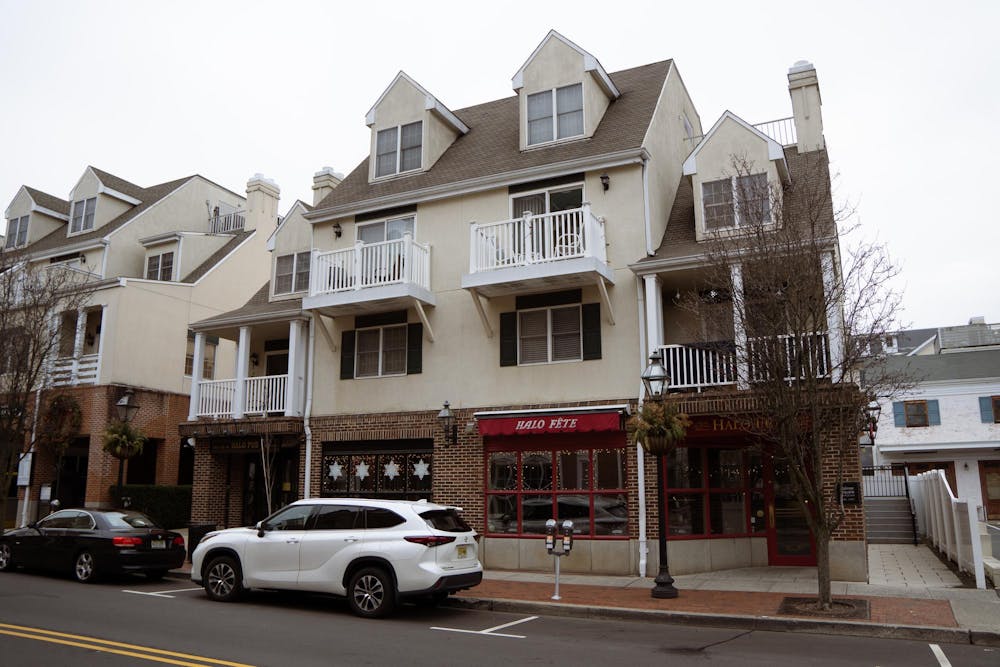On Jan. 30, the University announced its plan to donate more than $50 million over five years to the Municipality of Princeton and local nonprofits. At roughly $10 million a year, the contribution represents more than double the value from 2022, when the University made a voluntary payment of $3.9 million to the Municipality of Princeton.
The new payment plan includes $28.2 million in unrestricted cash contributions, $11.3 million dedicated to specific municipal projects and programs, and $10.8 million to local agencies and lower and middle-income residents. Programs and agencies due to receive funding include the fire department, a scholarship fund for low-income students who graduate from Princeton High School, and various housing-affordability programs.
The lack of housing affordability in and around Princeton has been a major issue at the University, in the Graduate Students’ unionization struggle, and in the Princeton community at large. Building more affordable housing has also been a major issue in local politics. There have been a variety of proposals for affordable housing in various locations, one of which has been facing opposition from local residents who cite the historic nature of the neighborhood and the size of the proposed developments.
This voluntary contribution is separate from the University’s tax payment, which totaled $7.7 million for property and sewer taxes in 2023. In the past, the University unnecessarily paid taxes on some properties for which they had exemptions. In 2023, the University claimed the tax exemption for those properties previously left voluntarily on tax rolls. The increase in voluntary contributions in 2023 was to make up for this reduced tax payment.
Some view the contribution plan as not a donation, but more of an unofficial payment in lieu of the many taxes from which the University is exempt. Under federal tax code, colleges and universities and their foundations are classified as public charities — as a result, they are not subject to taxes on investment income. In all 50 states, nonprofits are exempt from property taxes. Between these policies, Princeton does not have to pay taxes on its roughly $34 billion endowment or its more than 2,360 acres of land.
Universities have recently come under fire for their tax-exempt status. After recent Congressional hearings on antisemitism, some congresspeople argued that universities should lose their tax-exempt status. In New York City, as Columbia University and New York University have begun acquiring additional real estate, stripping the city of much-needed tax revenue, elected officials have speculated on whether such subsidies are the best use of resources.
Princeton has some programs that entail expansion in town, such as their Tenancy-In-Common Program, which allows eligible faculty and staff to co-purchase a property locally with the University. However, the University has not made a major land purchase since 1951, when it purchased 825 acres in Plainsboro.

In an interview with The Daily Princetonian, Princeton Mayor Mark Freda noted that the relationship between the town and the University has “strengthened” in recent years. However, he also addressed tax exemption as a point of contention.
“You look at all the property they have, the vast majority of that property doesn’t pay taxes. That’s why there’s this whole tug of war between the town and the University. Right?” he said.
Explaining the discussions of the size of the voluntary contribution, Freda said of the University, “What are you really costing us? And are you doing enough to offset that cost? So that’s the continual back and forth. And I think we’re in a pretty good place on that right now.”
When asked about the plan, the University Spokesperson Michael Hotchkiss directed the ‘Prince’ to the official press release.

In the release, President Christopher Eisgruber ’83 said, “We are pleased to advance these shared priorities in collaboration with local government and nonprofit organizations to provide meaningful services and resources across our community.”
Not everyone is thrilled with the payment. In a recent letter to the editor in TAPinto Princeton, local activist Maria Juega took issue with the form of the contribution. She wrote, “If the intent of the Princeton contributions is truly to ‘aid lower and middle-income residents’ and address ‘the challenges of affordability, sustainability, and equity within the community we share,’ why would these subsidies only be reserved to homeowners who, by definition, are the more privileged residents of the community?”
In her criticism, Juega stated that much of the University’s contribution towards housing affordability benefits “more privileged” homeowners, rather than renters who might be in more financially precarious circumstances.
In an interview with the ‘Prince,’ Juega called the plan “anything but equitable” and said, “Is it insufficient? No, of course it’s not sufficient.”
In a statement to the ‘Prince,’ Director of Media Relations Jennifer Morrill noted that “the University, in addition to voluntarily assisting homeowners whose income is $150,000 or less, many of whom are seniors, through this year’s voluntary payment is also providing support to renters and housing insecure” through through their donations to the nonprofit Housing Initiatives of Princeton and “to the municipality for emergency housing assistance.”
While the size of the voluntary contribution is less than what the University would pay in property taxes without its exemption, Freda argued that its large benefaction will be a force for good in the town and is a positive indication of the University’s engagement with the town of Princeton.
“A lot of people have a stereotype image of who lives in Princeton, and that everybody that lives in Princeton is exceedingly wealthy, and doesn’t appear in the world when it comes to money,” Freda noted. “We have people that are barely surviving and live in town.”
“The fact that the University is acknowledging, hey, we’re specifically giving money for some of these purposes… that’s pretty big.”
Julian Hartman-Sigall is an associate News editor for the ‘Prince.’
Please direct any corrections to corrections[at]dailyprincetonian.com.
Editor's Note: This piece has been updated to further clarify the 2023 increase in voluntary contributions and to include University comment.








